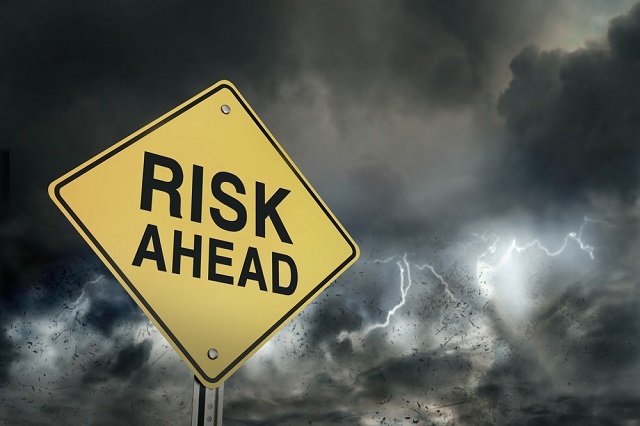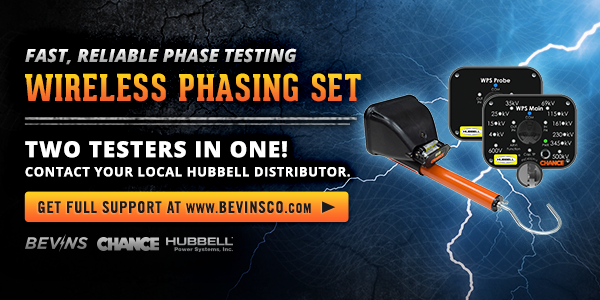Winter storm safety tips that served me well. – Marty
We asked Marty, one of our resident experts and a former power lineman, what he thought was the most important thing to remember when working on the line during winter storms. We had no idea how much great advice was just waiting to be told. Take notes from this veteran lineman and you’re likely to stay alive and prevent accidents from happening around you.

STAY FOCUSED AND ALERT DURING SAFETY TAILGATES
They are even more important in winter storms!
- Never assume everyone understands – Ask questions until each crew member is on board with the safety requirements and work procedures for the job at hand.
- Ask questions – If there is any chance a member of the team does not seem understand their role and/or the overall job.
- Communicate with utility dispatch: All communication is vital during these meetings.
KEEP RECORDS IN WRITING WITH TIME AND LOCATION
This is for future reference and to keep everyone informed.
- All Switching Orders
- All lock-out, tag-out orders
- All trucks and crews assigned to your work area (substation, feeder, breaker, etc.)
- Ask utility dispatch for permission before energizing equipment.
- Properly notify trucks and crews assigned to your work area before energizing equipment
HAVE A DESIGNATED EMERGENCY PLAN FOR EACH JOB SITE
Be ready to react immediately!
- Once an emergency occurs, first communicate out to start Emergency Medical Response (EMS) in route to the Job site.
- Know where the nearest emergency medical care facility is and/or how to contact Life Flight
- Set up the plan with the exact location and clear procedures to follow.
- Inform each team member with the specifics of the plan & the exact location to report.
WEAR YOUR PPE (Personal Protective Equipment) AT ALL TIMES.
Use proper barrier work zone procedures as required
- For “Pole to Pole” – Overhead work from the time your feet are on the ground ready to walk into the work zone and climb until you get back on the ground and in a safe area, outside the work zone.
- For “Lock to Lock” – Underground equipment from the time you touch the lock until you re-lock the equipment at end of job.
- For all bucket trucks working overhead lines at all times – including ground personnel who are inside the work zone or who could be called to approach or touch the bucket truck to use lower controls or get tools/hardware off the truck.
BE AWARE OF DIMINISHED MENTAL ALERTNESS IN YOURSELF AND OTHERS.
Watch for crew members working at less than 100% due to lack of rest, stress, medical conditions, lack of prescriptions, air quality hazards / lack of oxygen, distractions from body pain or strain.
- Remember that each team member is responsible for themselves and every other crew member.
- If someone is struggling to follow safe work practices and procedures, be ready to call “Time-Out”.
- Stay focused on safety at all times.
- Pay attention to your surroundings – do not let yourself become distracted.
- Watch each other’s back – your “surroundings” include the presence and work by the other linemen
- Always follow the work practices and procedures as discussed in the safety tailgate. Do not take unexpected “short-cuts” or a different work practice than what was discussed at the safety tailgate.
PLAN FOR THE UNEXPECTED
Remember that in storms, nothing is normal. Safety hazards include, but are not limited to:
- Crossed connected lines (including other utility source feeds, over-build or under-build)
- Backfeed from damaged equipment (breakers, switches, etc.)
- Induced voltages (over-build or under-build)
- Installed emergency jumpers by earlier line restoration efforts
- Storm damaged lines, trees or debris
- Improperly connected generators on the customer side
- Blocked roads, washed out roadways or bridges
- “Expect the Unexpected” AT ALL TIMES
IF IT IS NOT GROUNDED…
Work ALL conductors as if they are energized.
- Grounds must be “in-sight” and properly connected to a KNOWN earth ground system.
- Test every conductor including metal cabinets – system neutrals may not be intact, and may become energized
- Broken system neutrals should ALWAYS be treated as energized even if laying on the ground.
- Current flow kills whether ground referenced or not; DO NOT allow your body to become a bridge across a broken neutral.
ALWAYS THINK SAFETY! YOUR LIVES DEPEND ON IT.
